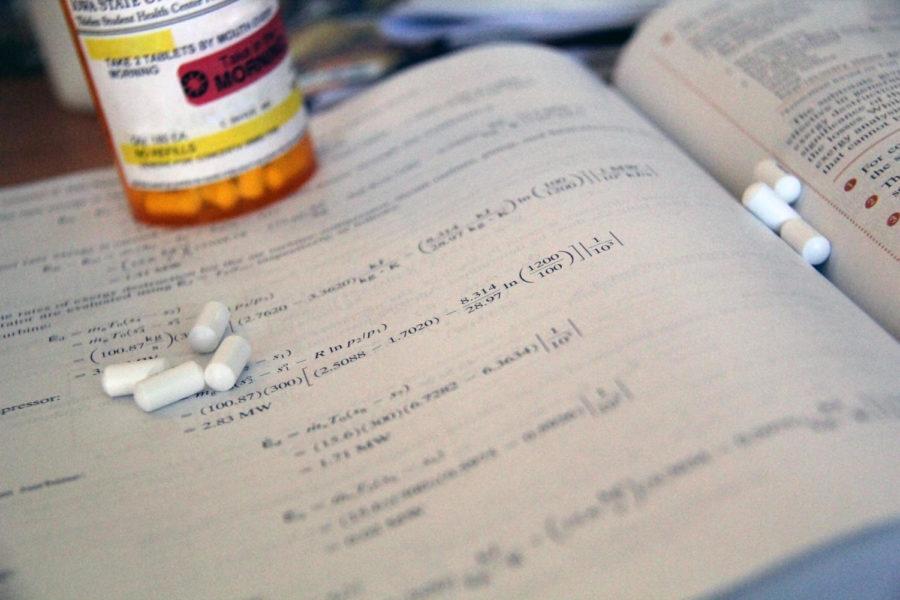Heckle: United States should adapt drug polices similar to Portugal
Students begin to seek alternative ways to help promote studying. Some students turn to prescription drugs that they are not assigned to take.
October 18, 2015
The war on drugs in America has proven to be a complete and utter failure.
Trillions of tax payer dollars have been spent on trying to enforce ineffective drug laws. Recidivism — a tendency to relapse into criminal behavior — and drug use is on the rise. After 40 years, it’s clear that the war is lost, but we are not the only country to experience such an epidemic.
By the year 2000, Portugal faced the worst drug problem in Europe. With 1 percent of the population addicted to heroin, the Portuguese government made the decision to eliminate criminal penalties for all drugs.
While trafficking and soliciting are still criminally processed, possession of a small amount of any substance, from marijuana to methamphetamine, is legal in Portugal. Portugal has put an emphasis on treating drug addiction by allowing easier access to drug treatment centers as an alternative to paying a fine.
This policy has been tremendously successful. Not only has drug use in Portugal been cut in half during the 15 years these laws have been in place, but adolescent drug use has decreased astronomically since 2003.
Portugal and other countries that embrace similar laws have statistically lower rates of drug use than countries like the United States. Drug-induced deaths in Portugal have also been significantly reduced, from 80 deaths in 2001 to 16 in 2012. By implementing these new laws, Portugal has succeeded in increasing the amount of users who go to voluntary drug treatment by 60 percent.
HIV and AIDS cases among drug users have decreased as well. By allowing addicts access to things such as fresh needles, along with treatment, Portugal has managed to reduce diagnosis of HIV in drug users from 1575 cases in 2000 to 78 in 2013. AIDS has decreased in cases from 626 to 74.
The number of individuals arrested and sent to criminal court have decreased by more than 60 percent since 2001. The percentage of individuals in prison for drug related charges has decreased from 44 percent before the change in drug laws to 24 percent in 2013. Seizures of illicit substances have increased.
The United States hasn’t come close to matching this success using its punitive drug policies. The United States currently leads the world in drug use even after a 40-year war attempting to eradicate it. What is even more sickening is the amount of tax payer money that is spent on enforcing these arbitrary and ineffective laws. The United States spends $40 billion per year on drug enforcement alone.
This includes the cost of imprisoning drug users. It costs tax payers $24,000 every year that person is in prison. Since the recidivism rate of drug-related crimes is a staggering 77 percent , the United States has managed to create an endless cycle of offense, punishment and re-offense that costs tax payers nearly unfathomable amounts of money without solving the issue.
Instead of treating drug users and addicts as criminals, the United States should treat them for what they are — sick individuals. The average cost of the most effective drug treatment programs is $4,700. And this cost would only be paid once.
The crime of drug use fits neither the retributive nor the rehabilitative aspects of law enforcement. The crime of drug use, by itself, hurts only one person — the user. No need for any kind of retribution exists.
No logical reason exists to continue this pointless assault on users. The United States is at a point in its existence where policies toward drugs need to change. Adapting a policy such as the ones that are enforced in Portugal would help millions of drug users and save tax payers billions of dollars.
With the success Portugal has had in the last 15 years, the decriminalization of drugs should not be inconceivable in the United States.







